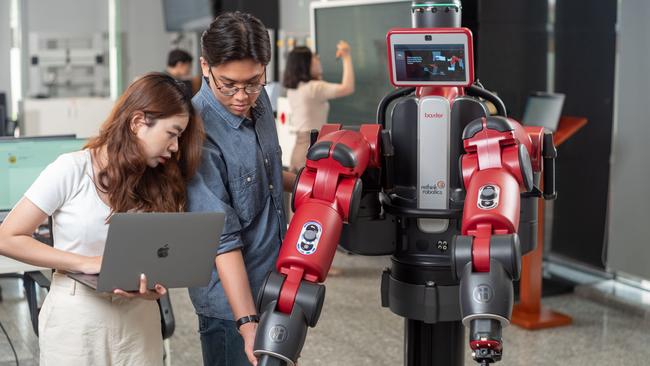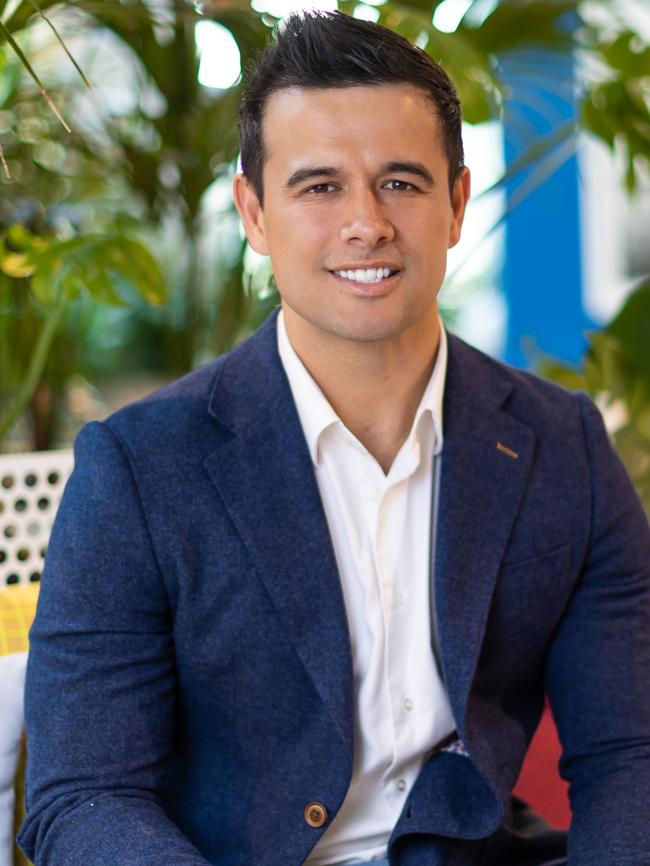Vietnam tech talent increasingly meeting Australia’s demand
Vietnamese tech talent is increasingly finding a home with an Australian firm, with the hiring rate out of the southeast Asian nation more than doubling in the last year.

A southeast Asian nation about 5200km from Sydney is increasingly rising up to meet the demand of Australian tech companies.
Hiring out of Vietnam has grown 126 per cent over the past 12 months.
The relationship isn’t one-sided, with Vietnamese workers now favouring the working conditions and benefits of Australian tech businesses over the US and South Korea, says Kevin Nguyen, the founder of tech recruitment platform JobHopin.
“I think nowadays, if Vietnamese tech talent have to choose between offers from the US, Australia and Korea, they’ll pick Australia,” he said.
“In terms of speed, work culture, expectation and communication, the US and Korea aren’t as attractive compared to Australia, where employers tend to focus more on cultural perks.”
Talk of job offers and opportunities within Australian tech companies has exploded on social media in Vietnam, he said.
Mr Nguyen said jobs with Australian employers were now considered “top notch” and remote tech workers were increasingly on the hunt to work for the likes of Atlassian.
Part of that had to do with the fact that Atlassian already had a Vietnamese workforce. Other tech giants including Netflix have set up major operations in the country.
Mr Nguyen has had his finger on the pulse of the hiring market for several years after successfully building a tech recruitment platform that leverages AI to translate jobs and worker applications from Vietnamese to English. The new insights on Vietnamese tech talent came from HR tech platform Deel and its state of global hiring report, which analysed over 300,000 worker contracts and 20,000 customers on its platform. The company also recently set up operations in Vietnam.

The report also found a surge in domestic hiring in Australia, with a 719 per cent growth over the past 12 months. About 85 per cent of Deel’s contracts are for remote work.
Deel Australian country manager Shannon Karaka said the growth in local hires was largely positive and reflective of a new work environment in Australia.
“We’re still seeing a surge in global hiring and I think this is a reflection of companies exploring flexible, dynamic ways of working in response to a changing macroeconomic environment,” he said.
Karen Ng, Deel’s Singapore-based head of expansion, who helped establish the company’s Vietnam operations, said the country had drawn a lot of interest as a number of Vietnamese tech companies have expanded globally.
“There’s a very strong focus on tech in universities and compared to a lot of the southeast Asian countries, English is actually quite well spoken,” she said. “So that makes it easy for international companies to hire out of Vietnam.”
Vietnam has also become attractive to Australia’s higher education institutions, with RMIT establishing three facilities across the country since it officially launched in 2000.
It has campuses in Ho Chi Minh City and Hanoi and a language institute in Danang.
RMIT has over 20,000 alumni from its Vietnam operations, today catering for 12,000 students with 1000 staff.
“We offer a range of programs and courses to meet industry demands that prepare our students for the real world. RMIT Vietnam’s graduates are some of the most employable and their qualifications are not only recognised in Vietnam but also in Australia,” a spokeswoman said.
The big four banks are increasingly relying on the country to meet staffing demand and as a hub for innovation.
NAB is understood to have a large operation in the country which works on its quick-turnaround Simple Home Loans.
The bank had tapped into the Vietnam workforce several years ago as it expanded its product offerings, NAB group executive of technology and enterprise operations Patrick Wright said.
“For a number of years, we’ve been investing in the skills and capabilities of our people, as well as tapping into markets like Vietnam that have a real depth of talent in digital, data and technology to complement our teams in Australia,” he said.







To join the conversation, please log in. Don't have an account? Register
Join the conversation, you are commenting as Logout